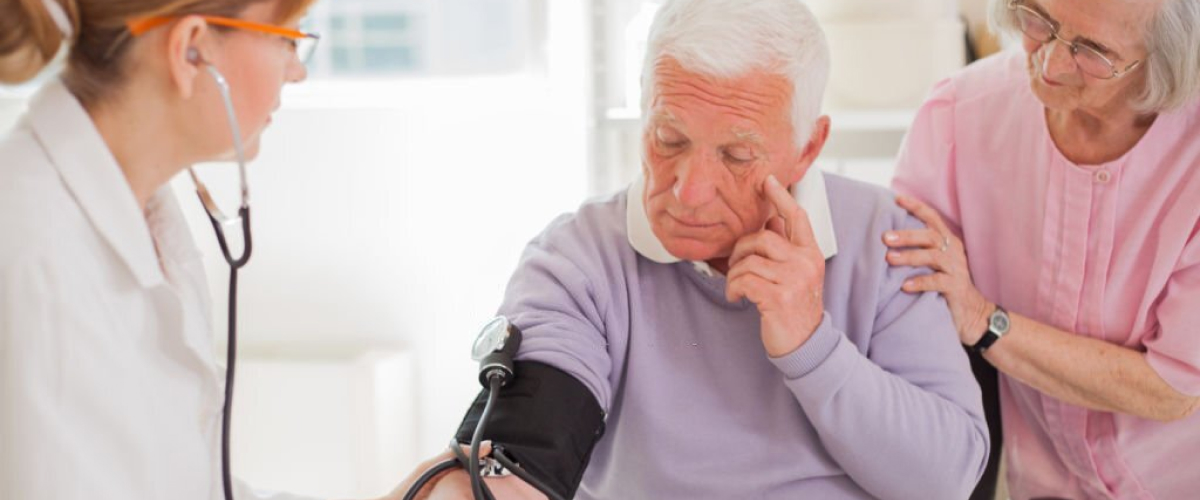‘Watching’ your elderly loved ones battle diseases is almost as hard as them suffering from the diseases. While it’s essential to address this issue promptly, it’s equally vital to approach it with care and empathy. In this blog post, we’ll discuss why sudden weight loss occurs in seniors and offer practical advice on how to support them through this challenging time. Let’s dive in.
Causes of Sudden Weight Loss in Seniors:
Before we delve into the actions you can take, it’s essential to understand why sudden weight loss can occur in elderly individuals. Several factors contribute to this issue:
1. Medical Conditions: Seniors often face medical conditions that affect their appetite and metabolism. Chronic diseases like cancer, diabetes, and dementia can lead to sudden weight loss in seniors.
2. Medications: Some medications have side effects like decreased appetite or digestive issues, making it difficult for seniors to maintain their weight.
3. Oral Health: Dental problems can hinder proper chewing and swallowing, leading to reduced food intake.
4. Depression and Loneliness: Emotional factors, such as depression or feelings of isolation, can affect eating habits.
5. Loss of Taste and Smell: Age-related changes in taste and smell can make food less appealing, causing reduced food consumption.
Signs to Lookout for:
Apart from getting the patient checked for these serious ailments, you need to monitor them for these unusual signs upon sudden weight loss. Keep in check the following:
- Fever
- Weakness & Fatigue
- Frequent Falls
- Shortness of Breath
- Frequent Illness
- Abdominal Pain
- Blood in Stool
While they may appear to be normal and harmless at first, they can lead to dangerous illnesses like lung disease (pulmonary disease), pancreatic or liver disorder, or a blockage of the intestines.
Mental Causes of Senior Weight Loss:
Poor physical health may not only be the reason for the quick weight loss in a short period. Mental suffering can cause that as well. Often mental and emotional healthcare among seniors is not given as much significance as physical health. Increasing age and decreasing health can take a toll on the mental health of your parents.
Moreover, watching life-long friends or partners leave one by one, it is common to experience sadness or depression among our aging parents. Loneliness and anxiety can affect their mental health. Hence, it is important to engage them in activities that keep their mental health fresh.

How Can Sudden Weight Loss be Treated?
Treating sudden weight loss in the elderly requires a comprehensive approach that addresses the underlying causes and provides appropriate care and support. Here’s a step-by-step guide on how to treat sudden weight loss in elderly individuals:
1. Consult a Healthcare Professional:
If you notice your elderly loved one experiencing sudden weight loss, the first step is to consult a healthcare professional. Schedule a visit to their primary care physician to rule out any underlying medical issues. The doctor can perform a thorough evaluation, including blood tests and physical examinations, to identify potential causes.
Be sure to accompany your loved one to the appointment, as they might forget to mention important details or feel overwhelmed. Share your observations with the healthcare provider to provide a comprehensive picture.
2. Revise Their Diet:
Once any medical concerns are addressed, it’s time to focus on their diet. Here are some dietary changes that can help:
a. Nutrient-Dense Foods: Ensure their meals are rich in nutrients. Include fruits, vegetables, lean proteins, and whole grains in their diet.
b. Frequent, Smaller Meals: Encourage them to eat smaller, more frequent meals throughout the day rather than three large ones. This can make it easier for them to consume enough calories.
c. Stay Hydrated: Dehydration can exacerbate weight loss. Make sure they drink enough fluids, including water, herbal tea, and clear soups.
3. Address Emotional Well-Being:
Sudden weight loss can sometimes be linked to emotional factors. Engage in open and compassionate conversations with your loved one. Listen to their concerns and provide emotional support. If needed, consider seeking professional help, such as therapy or counseling, to address underlying emotional issues.
4. Social Engagement:
Loneliness can contribute to weight loss in seniors. Encourage social activities and interactions to combat isolation. Arrange for visits from friends and family, or explore senior community programs and clubs that can help them stay engaged.
5. Monitor Their Progress:
Regularly track their weight and dietary habits. Keeping a food diary can help identify any patterns or issues that need attention. Share this information with their healthcare provider to adjust the plan as necessary.
Bottom Line:
Sudden weight loss in elderly loved ones can be a challenging situation, but with patience, empathy, and the right strategies, you can help them regain their health and well-being. Remember that every individual is unique, and it may take time to address the root causes and see improvements.
By working closely with healthcare professionals and providing emotional support, you can make a significant difference in their quality of life. Stay vigilant, and stay compassionate, and together, we can help our elderly loved ones overcome sudden weight loss.
Want to learn more?
Reach us at wecare@considracare.com, or call us at 1-855-410-7971, and we will be happy to assist. Discover more tips in our information booklets or on our resources page.
FAQ’s:
1. What causes rapid weight loss in the elderly?
Rapid weight loss in the elderly can result from various factors, including medical conditions (such as cancer, diabetes, or dementia), medication side effects, dental problems, loss of appetite, or emotional issues like depression and loneliness.
2. What happens if an elderly person loses too much weight?
Excessive weight loss in the elderly can lead to serious health complications. These can include weakened immune function, muscle loss, increased frailty, higher risk of infections, and a decreased ability to recover from illnesses.
3. Does sudden weight loss affect your face?
Yes, sudden weight loss can affect the face. It may lead to a sunken appearance due to loss of fat and muscle tissue, which can make wrinkles and fine lines more noticeable.
4. Is weight loss in the elderly normal?
Weight loss in the elderly is not always normal. While some weight loss can occur with age, sudden or unexplained weight loss should be evaluated by a healthcare professional, as it often indicates underlying health issues that need attention.
5. What are the bad signs of weight loss?
Warning signs of unhealthy weight loss include extreme fatigue, weakness, dizziness, changes in appetite, severe muscle wasting, and rapid or uncontrolled weight loss. These should prompt immediate medical attention to address potential underlying problems.




